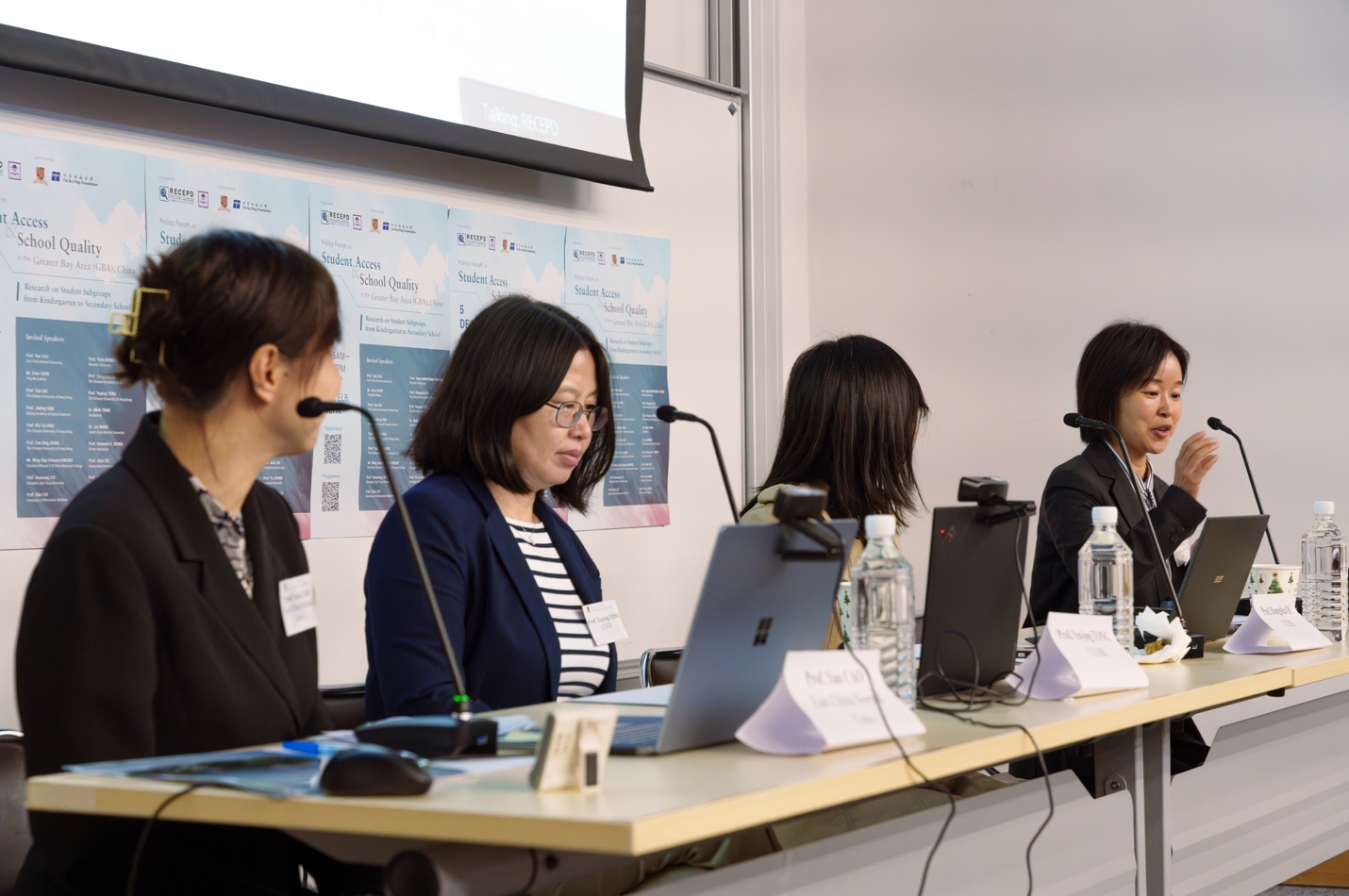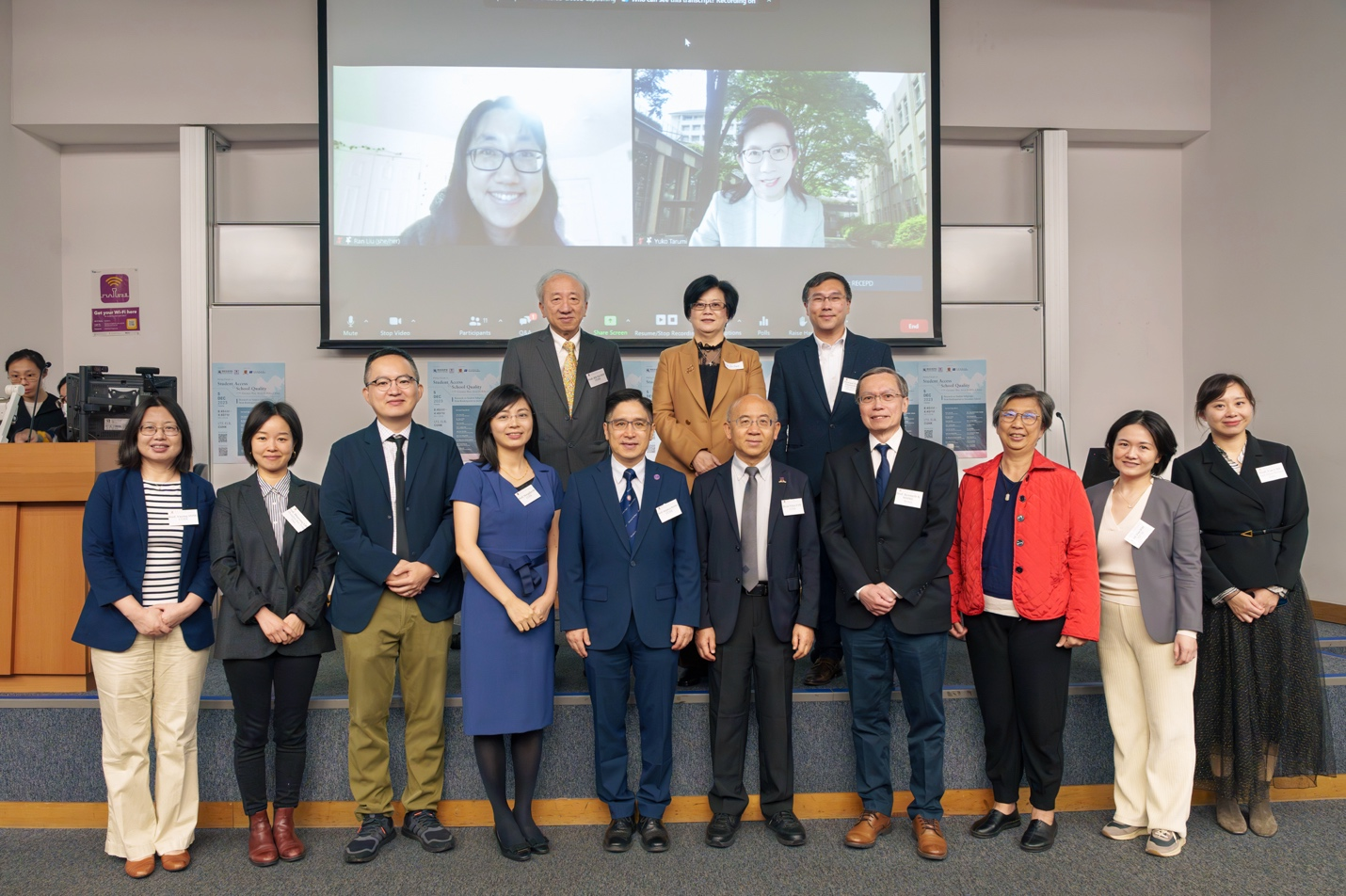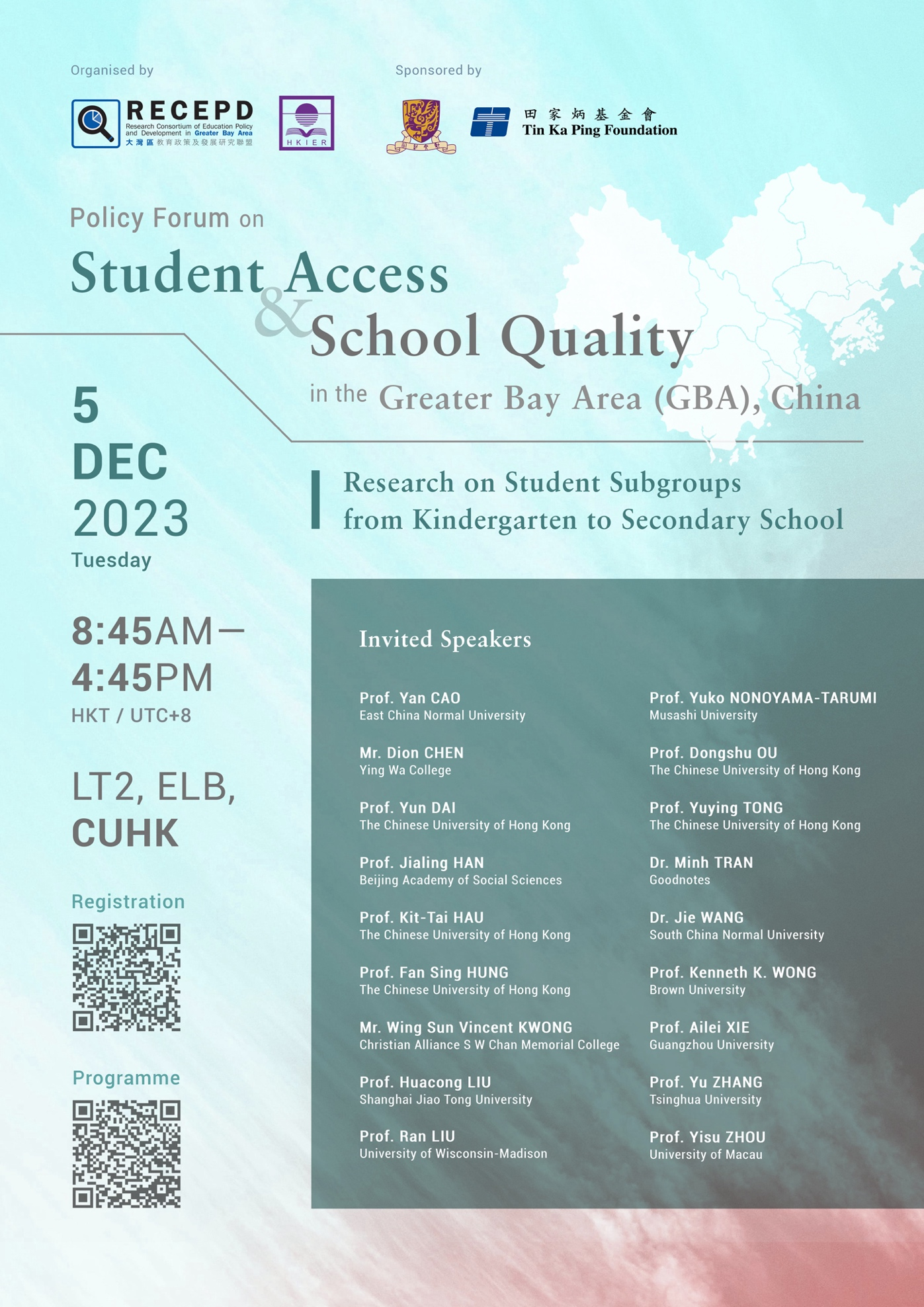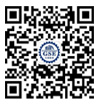Dr. LIU Huacong, from the Center for Educational Leadership and Policy Studies, recently participated in the second Great Bay Area (GBA) Educational Policy Forum. The event was organized by the Hong Kong Institute of Educational Research, and co-sponsored by the Tin Ka Ping Foundation, intending to bring together leading researchers from different regions to discuss educational reform issues and social opportunities in the Greater Bay Area (GBA). The Forum adopts multiple perspectives to encompass the economic, social, political, psychological and policy aspects of educational issues in GBA.
At this recent forum, Dr. Liu was invited to discuss two significant papers: 'Dominant Language as a Channel of Upward Mobility?' by Professor Tong Yuying and 'Four Decades of Educational Mobility in Hong Kong' by Professor Dongshu Ou, both affiliated with The Chinese University of Hong Kong (CUHK). These studies leveraged multiple waves of Hong Kong's census and bi-census data to examine trends in language acquisition and intergenerational educational mobility, respectively.

Dr. LIU praised the extensive data analysis in both studies and underscored their unique contributions to educational research literature. She highlighted that Professor Tong's paper added rigor to the study of language acquisition trends among native and immigrant families in multilingual societies, particularly Hong Kong. Dr. LIU suggested that future research could benefit from incorporating PISA data, which provides direct assessments of language proficiencies, instead of relying solely on self-reported language usage.

Regarding Professor Ou's study, Dr. LIU commended the detailed examination of intergenerational educational mobility among Hong Kong's youth from 1991 to 2021. She enriched the discussion by introducing additional empirical studies, illuminating potential factors influencing this upward educational mobility. These factors include the expansion of higher education, the varying returns to higher education, and gender disparities in educational returns in Hong Kong.
Finally, Dr. LIU recommended that future studies explore the parallels between intergenerational income and educational mobility. Additionally, she suggested examining the relationship between cross-sectional income inequality and intergenerational education mobility in Hong Kong.

Written by LIU Huacong
Edited by CHEN Ruoxi





